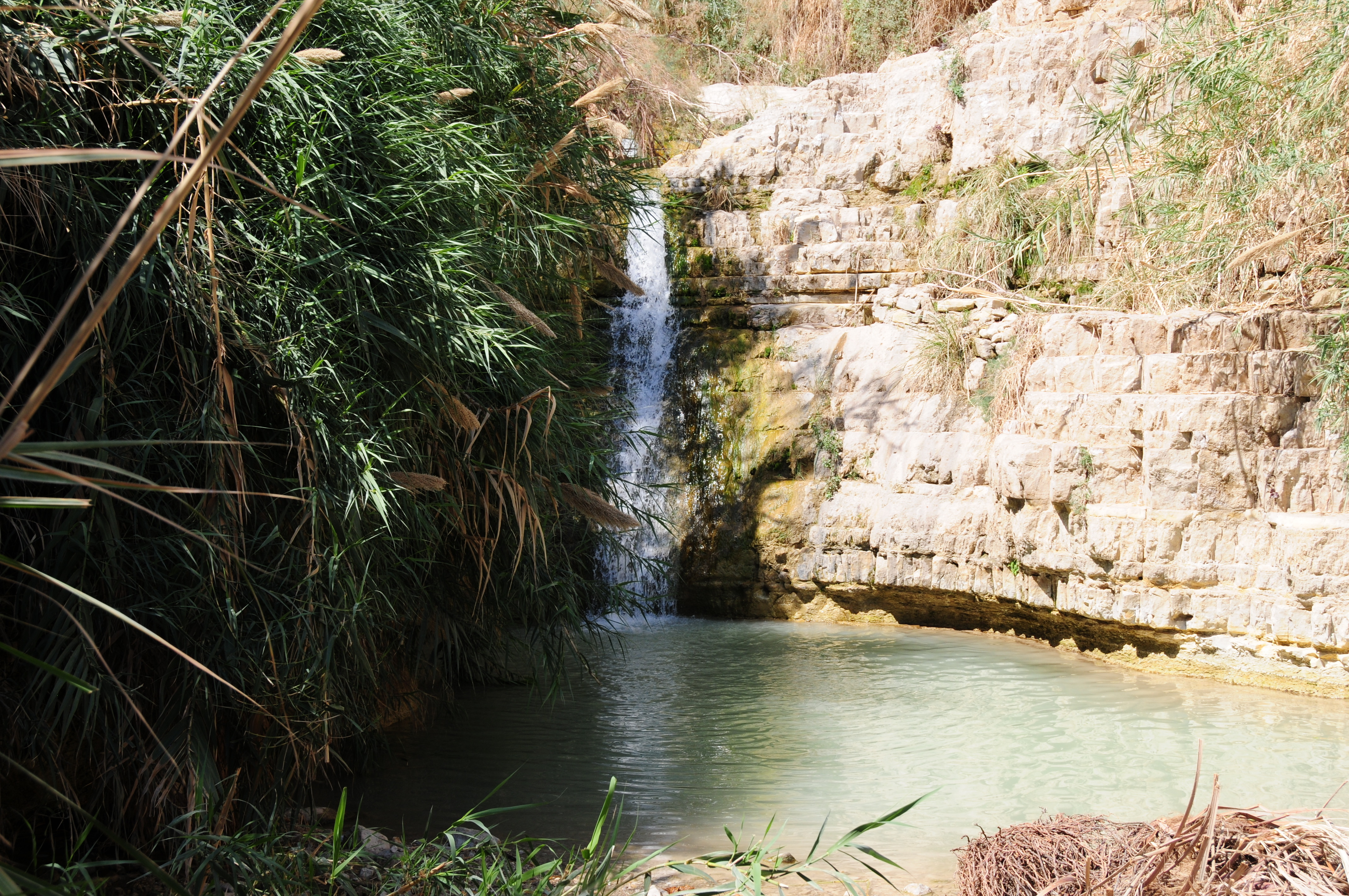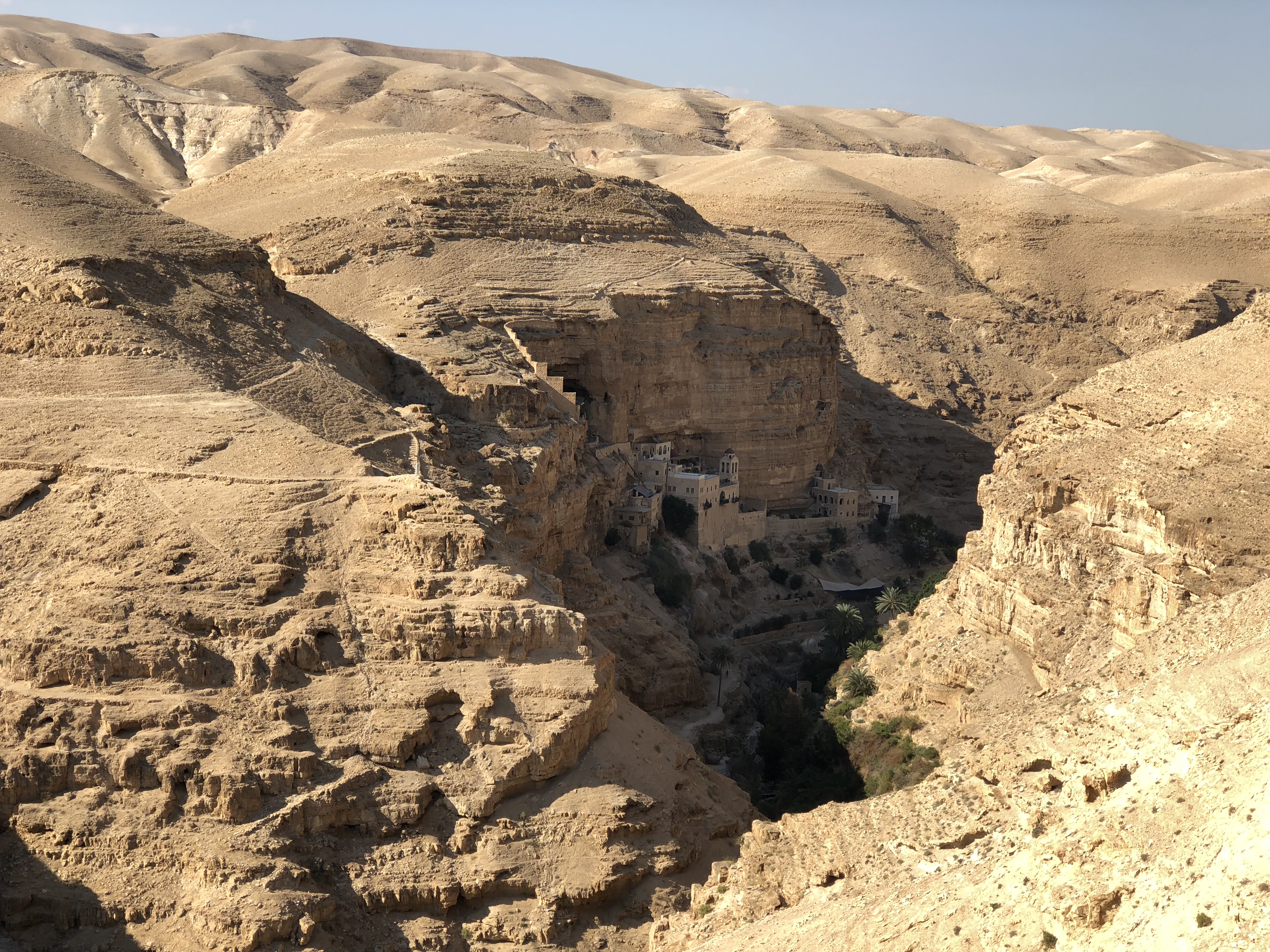Five Days Through the Holy LandVzorec

Comfort in the Wilderness
One of my greatest adventures in Israel was an all-day hike through the wilderness. At one point, we encountered a shepherdess tending her flock as it grazed in the canyon. She reminded me of young David watching over his father’s flock 3,000 years earlier. That’s where David became skillful in using a sling and composing songs that later found their way into the Book of Psalms.
We’re not sure when David penned Psalm 23, but the first four verses come from his experience as a shepherd. You can almost hear the flock bleating in the background as David takes us into the wilderness to share the lessons he learned about God during his time there.
“The Lord is my shepherd; I have all that I need” (Psalm 23:1). David began by affirming that God was the Shepherd watching over him. He illustrated this statement with two word pictures. First, “He lets me rest in green meadows” (Psalm 23:2). David is picturing the new grass that sprouts when the winter rains arrive. It’s succulent, moisture-rich, and tender-the most beneficial food for the flock.
David’s second word picture comes from the springs of water that dot the wilderness. “He leads me beside peaceful streams” (Psalm 23:2). Although water was scarce in the wilderness, the wise shepherd knew where to find it. We might imagine pools of water with little movement, but that’s not what David has in mind. He’s actually picturing a water source that is calming and restful, where the flock can drink in quiet safety, unafraid of any wild animals that might lurk nearby.

What happens when the shepherd leads his flock to hillsides covered in sprouts of tender grass and to restful springs of water? “He renews my strength” (Psalm 23:3). The flock is nourished and refreshed. The hungry are satisfied, and the thirsty are revived.
David then adds, He guides me along right paths, bringing honor to his name” (Psalm 23:3). God’s ways are good because God Himself is good. Though we might not understand all that happens in our lives, we can be confident that the specific path on which He takes us is the right one because it’s God’s name—His very reputation—that’s at stake.
The role of the good shepherd involves more than just providing for the physical needs of the flock. He’s also expected to guard the flock from danger. “Even when I walk through the darkest valley, I will not be afraid, for you are close beside me” (Psalm 23:4). But what is the “darkest valley”?

Two words in Hebrew describe valleys—one portrays a broad, wide valley, the other, a steep, narrow valley. Here, David uses the word for a narrow valley, like those cutting through the wilderness, to illustrate life’s dangers. As night falls, dark shadows creep into the deep valleys of the wilderness, hiding a multitude of dangers. Wild animals leave their dens to prowl for unsuspecting prey. Death itself seems to lurk in the shadows.
But when the flock is under the care of the shepherd, it needn’t be afraid. “Your rod and your staff protect and comfort me” (Psalm 23:4). The shepherd stands guard with his club and sturdy staff. These are the weapons he has in his hands, ready to beat off any animal threatening the flock. His presence, and promised protection, provide “comfort” in what otherwise could be a time of anxiousness and concern.
So what can we learn from our time with David in Psalm 23? First, as our Shepherd God promises to meet our needs. Second, God also promises to guard us against danger. Even when we journey through the deep, dark valleys of life, we can be sure God is walking with us and watching over us. We don’t face life’s threats alone.
Sveto pismo
About this Plan

Step away from the hustle—and hassle—of life and begin a five-day journey through the Holy Land. Experience the life-changing reality of exploring the Land and the Book.
More
Sorodni načrti

Sanjaj Skupaj z Nebeškim Očetom

Imena Boga ...

V Novo Leto Z Močnejšo Vero

Teden pasijona

Odkrijte Pot v Nebesa, v Očetov dom, v Božje Kraljestvo

Daj prostor besedi: Greh in odpuščanje

Ne boj se, zasveti!

Hvalospev: Milost v tvoji zgodbi

Najti Tolažbo v Osamljenosti ?
